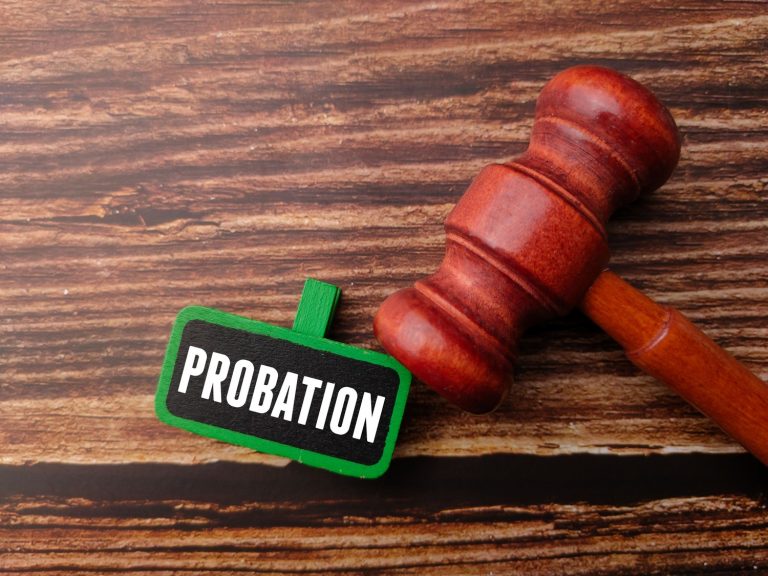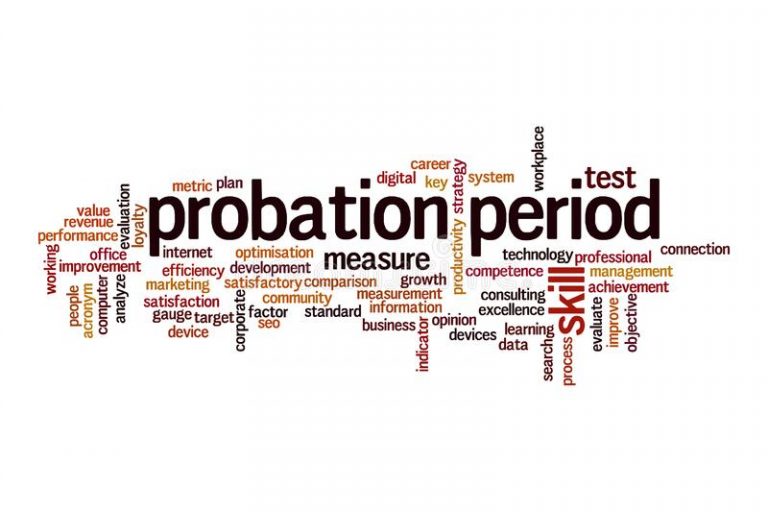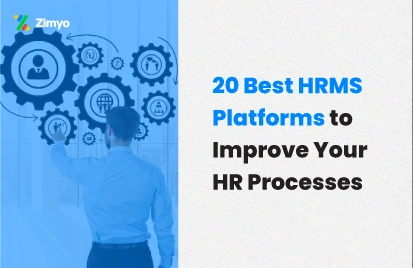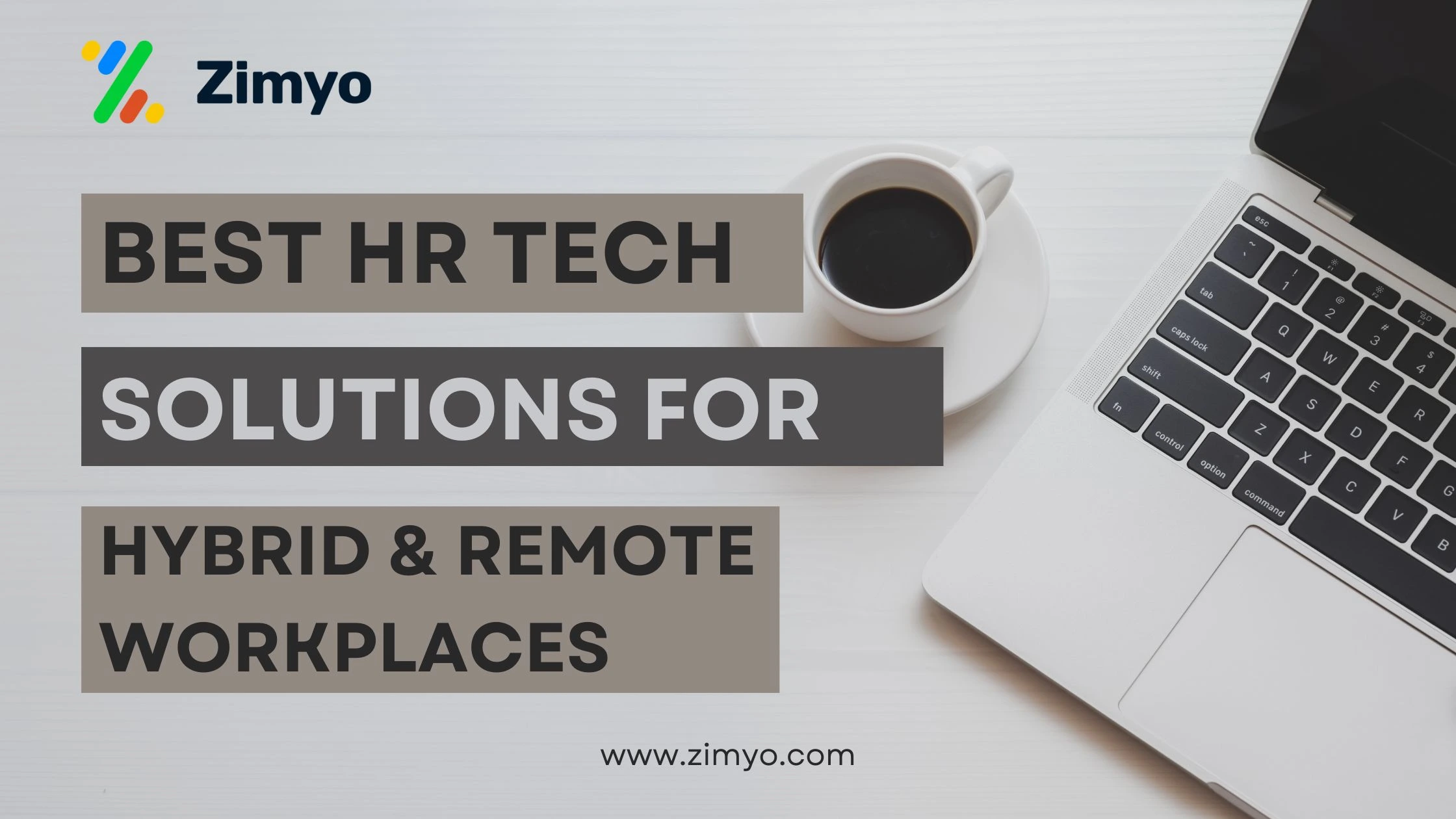Having interviews and one-on-one’s aren’t the only method to determine a candidate worthy of being selected. The solution to this problem came in the form of a probation period.
These introductory trial periods allow the fresh recruits and the company to get a better feel for the position.
A bad recruitment can have devastating effects on team productivity and morale as well as can cost a business thousands if not lakhs.
A method of reducing the risk of a bad recruitment is to offer a paid probation period. A probation period generally spans 3 months to a year and benefits both the employer and the employee.
After the probation period ends, both parties can take the final decision easily. Whether the employee wants to join in on the team and company or the employer wants to hire them permanently or not.
What is probation period?
Probation period refers to the paid trial period that a fresh recruit serves in their new organization. This period enables both the employer and the new employee to get to know each other better.
Based on the results of the probation period, an employer determines whether a permanent position can be offered to the candidate or not. On the flip side, this period helps an employee in deciding whether they want to continue working for the organization or not.
The candidate is thoroughly tested in this period and is encouraged to engage with other people and the work environment. Moreover, if an employer finds an employee not up to the mark or their performance unsatisfactory, the employer can terminate the contract whenever and it cannot be considered illegal.
Probation period is a form of trial and its purpose is to figure out if the employee is suitable for the position or not.
How long can a probation period last?

The duration of any probation period varies across different businesses and industries. The company policies also play a major role in deciding the timeline of a probation period. Generally, a probationary period can last anywhere between 3 months to a year.
What happens during the probation period?
The duration of a probation period is a learning curve for everyone involved – employees and employers alike. On the employers side, they try and understand how the new hire works, their skills and talent, work ethics, career objectives, etc., among other factors.
Whereas, the employees try to evaluate their own capabilities and if they’re the right fit for the organization. Moreover, they also figure out how well the organization is working for their career and goals.
In addition to everything, the employees also try to understand if they can adjust to different factors like traveling to office, working hours, work culture, environment, and policies, the physical aspect of working space, etc.
Why must a probation period be completed?
● Status of a permanent job
After completing the probation period, you will become a permanent employee of the organization. It will come with perks like being eligible for salary hikes, raises, promotion, and health insurance, among others.
● Exhibition of skills
After completing the probation, employees have umpteen opportunities to showcase their unique skills and strength.As they become an active part of the organization, the workforce take them seriously as well.
● To take well-thought and matured decisions
Probation periods may seem difficult, but it is important to stick around and weigh all the pros and cons of the job carefully. If you get impatient, you might make a rash decision to leave early, and as a result, let go of a great opportunity.
● To discover and evolve new skills
The probation period is a great time to pick up or polish your skills while learning the nuts and bolts of the industry you are a part of. In this process, you might also understand better how the company functions, discover new interest areas, and find out how you can add to the existing setup.
● Job security and goal achievement
Apart from the monetary benefits, completing a probation period leads to higher job security. Moreover, it instilled a sense of accomplishment, satisfaction, and motivation. In addition to that, it brings you closer to your long-term career goal.
Configure your policies in seconds!
Can a new hire get dismissed during probation?
The Supreme Court has clearly stated that during the probation period of an employee, the employer of that particular candidate can cancel or terminate the service without any notice.
As mentioned above, a probationer has no lien on the job, their service timeline is in the hands of the employer and can be terminated at the discretion of the employer.
The employer has every right to terminate the employment contract within 14 days’ notice or with immediate effect but they must compensate the employee for a 14 day pay based on the total salary basis.
How to conduct a successful probation period?
● Avail resources and a guide
The very first step is to provide the new hires with everything they would require to succeed and grow. From necessary resources like info, assets, and data to a mentor and guide to help them navigate through their probation journey.
Allot a buddy to new employees so they have some as their go-to person in the initial days of work. Transparency and easy communication are other factors that successfully onboard new hires.
● Make them feel like a full-time official
Assign the new hire with a real project instead of samples or dummies. Make them feel like a part of something official. A real project will make them feel responsible, and will show how well they would work under pressure when official work is handed to them.
● Let them explore the departments
If they desire to, you can present them with the opportunity to work for whatever department so they can get a number of experiences. This will expose them to different kinds of tasks and responsibilities and will determine how flexible and committed they are.
Furthermore, it might just help them to make a better decision regarding their career.
● Gather feedback from everyone
Look out for the best fit. Getting feedback from just the team leader isn’t enough. You should engage other team members and colleagues to speak their mind about the new hire. A 360 degree feedback mechanism always works wonders.
Instead, gather inputs from everyone about how the new team configuration is functioning and whether any changes are required.
● Actively monitor the hire
Throughout the probation period, a new hire should be monitored properly so as to note their habits and skills. Probationary period is a time where every employee is on best behavior and their real image may be concealed.
Note their social skills, ability to give and receive constructive feedback, capability to document and measure results, along with other things.
● Be present - Always
When in probation period, a new hire often needs constant supervision, help, and guidance. Being there for them boosts their morale and productivity and makes them trust the organization from day 1.
Frequent mini reviews are a great way to connect with the employee and to ensure everything is running smoothly. Increased communication equals increased loyalty.
● Offer a smooth onboarding
Plan the onboarding process in advance and add necessary steps such as activities and what info to give. Build a structured process. One can always use a reliable onboarding software to automate the entire process and seamlessly welcome new candidates.
The new candidate should be aware of the probation period, its timeline, and should be ready to proceed with full-time employment.
How to evaluate new hires during the probation period?
During the probation period, there are several factors on the basis of which you can evaluate candidates, to ensure they’re the right fit for the organization and that particular team and role.
● Plays by the rules
An important aspect to evaluate a new hire on is if they fit in with the company’s culture and follow it like everyone else does. The initial step is to figure out the culture of the organization. If swiftness, adaptability and being cooperative are a crucial part of the company’s DNA, then the new hire needs to operate on the same pace and track.
● Dynamic & business-minded
There are several qualities that managers look for in their potential hires. But most of all they seek a dynamic entrepreneurial attitude that can further go into habits of staying motivated, being adaptable, taking initiatives and using momentum.
● Flexible and adaptable
An employee, no matter how new or how experienced, should always hone the ability to be adaptive and compliant.
An employee like that is often the most resilient to changes. In emergent situations, the team always needs a person who can control the reigns with their knowledge and skills. The person who is not afraid to step out of their comfort zone, is most flexible and adaptable.
● Interpersonal Skills
Character traits of an employee are vital to take notice of. Whether they are friendly toward other employees or show a self-starter attitude. If they are a problem solver or a troublemaker.
Communication abilities and skills are harder to build than building technical skills. It requires an individual to be good and understanding to every other individual.Gauging this information early in the journey will only help in hiring the right fit for an organization.
● Curiosity for knowledge
During a new candidate’s probation period, another key criteria to evaluate them on is whether they have genuine curiosity to learn more or not. If they’re willing to discover new knowledge or have an aversion to it.
● Order & expertise
Being in order and alignment with the organization is an initial step. The extent to which the individual is keen to align with the company values. Values are seeped deep in a person and are hard to change or evolve.
The next one would be talent and expertise. They’re defined by recurring patterns of behavior and can be applied within a business environment productively.
How to successfully pass the probation period?
● Be Punctual
To successfully pass the probation period, it is important to be in discipline and the very first step toward it is being punctual. Being on time is an important prerequisite.
It’s a vital feature that reflects the attitude and approach towards the company’s rules and work culture and how serious the employee is for their role.
● Be Curious
Recruiters expect the new candidates to be inquisitive and hungry for new knowledge. They want every hire to be successful and follow an analytical or numbers-driven approach.
So, the work of an employee encourages them to portray curiosity, then they should showcase it from day 1 of their probation to strengthen their chances of being selected as a full-time employee.
● Be strong with communication
Having a strong communication suite increases the chances of a new hire getting a full-time offer after completion of the probation period. It portrays an employee’s confidence, his habits and etiquettes, along with other professional attributes.
Furthermore, it allows employees to communicate well with their superiors about any doubts or queries they might have in their heads.
● Be observant and applicant
Every organization has its own work culture and operation process that a new employee needs to understand and adapt to. So, a new employee must invest their time in observing and learning their new organization’s working style, culture, rules, and organizational structure.
If a person is hired for a leadership role, they must learn these aspects at a quicker pace because of their position.
● Be understanding about work expectations
If a new hire is roaming in clouds of confusion, they can always ask their new peers and colleagues for help and solutions. Getting an idea about their roles and responsibilities will gear them up in advance for any unseen situation.
Wrapping Up

Probationary periods allow the recruiter and the new joinee to manage the relationship more flexibly, so any unseen problems can be addressed before agreeing on a full contract.
Probation periods typically end with a review meeting between the new employee and their manager. During the course of the meeting, the organization can assess how well the new employee performed, what their training needs were, and whether they’re a good fit for the organization or not.
Also Read: Top 10 recruitment software in India
Also Read: How OKRs help in building a positive work culture?
Frequently Asked Questions (FAQs)
You have to serve the notice period as required to quit the job.
A probation period is a time period when the employees are tested whether they are qualified for the job position or not.
Yes it’s okay to resign from the company during the probation period and join another company.
If the probation of an employee is not confirmed the employer can either extend his probation period or ask the employee to leave if that employee is not suitable as per the job role.



